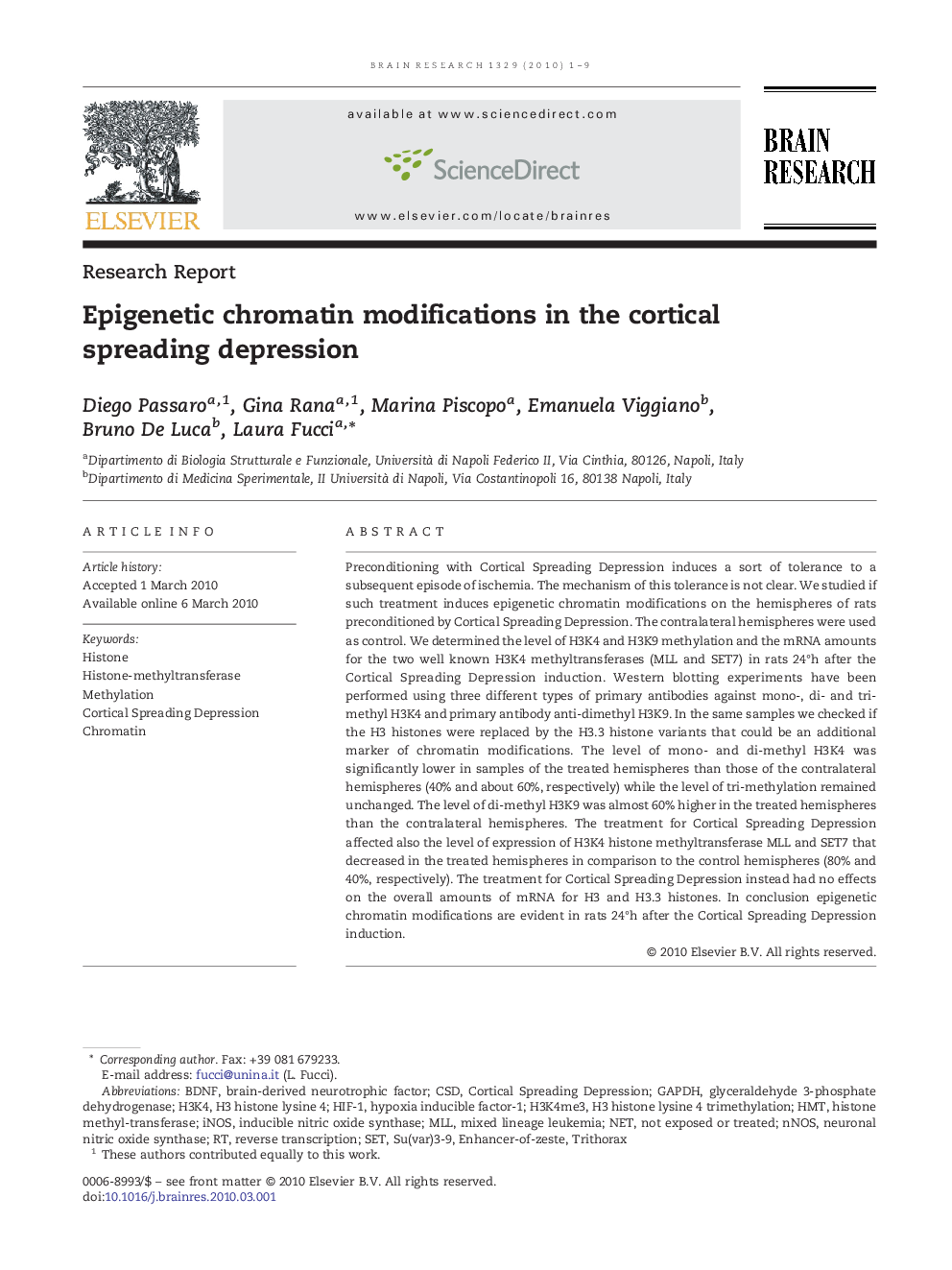| Article ID | Journal | Published Year | Pages | File Type |
|---|---|---|---|---|
| 4327090 | Brain Research | 2010 | 9 Pages |
Preconditioning with Cortical Spreading Depression induces a sort of tolerance to a subsequent episode of ischemia. The mechanism of this tolerance is not clear. We studied if such treatment induces epigenetic chromatin modifications on the hemispheres of rats preconditioned by Cortical Spreading Depression. The contralateral hemispheres were used as control. We determined the level of H3K4 and H3K9 methylation and the mRNA amounts for the two well known H3K4 methyltransferases (MLL and SET7) in rats 24°h after the Cortical Spreading Depression induction. Western blotting experiments have been performed using three different types of primary antibodies against mono-, di- and tri-methyl H3K4 and primary antibody anti-dimethyl H3K9. In the same samples we checked if the H3 histones were replaced by the H3.3 histone variants that could be an additional marker of chromatin modifications. The level of mono- and di-methyl H3K4 was significantly lower in samples of the treated hemispheres than those of the contralateral hemispheres (40% and about 60%, respectively) while the level of tri-methylation remained unchanged. The level of di-methyl H3K9 was almost 60% higher in the treated hemispheres than the contralateral hemispheres. The treatment for Cortical Spreading Depression affected also the level of expression of H3K4 histone methyltransferase MLL and SET7 that decreased in the treated hemispheres in comparison to the control hemispheres (80% and 40%, respectively). The treatment for Cortical Spreading Depression instead had no effects on the overall amounts of mRNA for H3 and H3.3 histones. In conclusion epigenetic chromatin modifications are evident in rats 24°h after the Cortical Spreading Depression induction.
